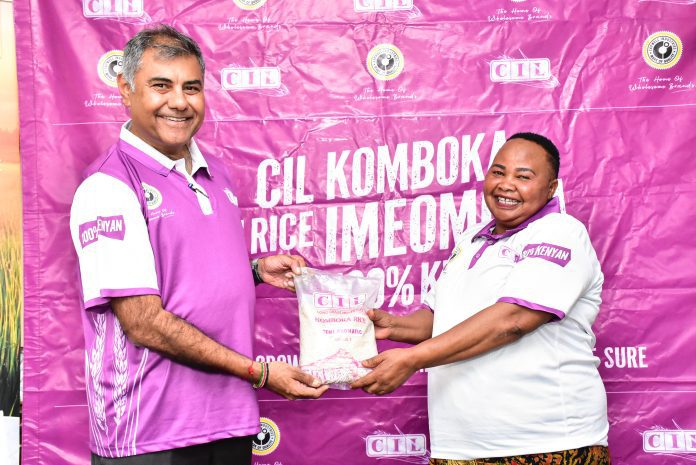Capwell Industries has commissioned initiatives to support rice farmers across the country to improve rice productivity and safeguard the country’s food security. The company has added a high-yielding, drought-resistant and fast-maturing variety of rice called CIL Komboka to its range of products that is now available to farmers across the country. The company has rolled out contract farming for the new rice variety where farmers will be funded to grow and supply the harvest to Capwell at guaranteed prices.
This is aimed at strengthening the supply chain and ensuring sustainable rice production in the country.
Rice farming is both capital and labour-intensive, involving activities ranging from land preparation, acquiring certified seeds, pest and disease management, harvesting, and transporting the produce to processing facilities. The high cost of inputs and supply chain challenges strain farmers’ returns, making it hard for them to sustain or expand their farm operations.
To address these challenges, farmers need comprehensive support, including access to quality seeds, training in smart agriculture, and efficient irrigation systems. As such, Capwell Industries has taken a proactive role in addressing existing challenges within the rice production sub-sector. Recognizing the barriers farmers face, Capwell is committed to supporting farmers throughout the production cycle.
Ronald Oduor: I never knew rice farming is this profitable, I wish I started earlier
Capwell Industries CEO Rajan Shah says the support given to farmers is aimed at achieving the long-term goal of more sustainable livelihoods for Kenyans.
For many years, rice has been a staple dish for many families across the country. It is now the third most consumed grain in Kenya, after maize and wheat, with approximately 1.2 million metric tonnes consumed annually. This demand is growing steadily, with consumption increasing at an average rate of 12% annually over the past decade. The changing dietary habits amongst Kenyan families are projected to further increase the demand.
Demand for rice continues to outweigh domestic production. Data from the Kenya National Bureau of Statistics (KNBS) shows that while the country’s annual rice consumption exceeds one million metric tonnes, local production is only about 230,000 metric tonnes per year. As a result, the government imports more than 700,000 metric tonnes (80%) annually to bridge the gap, costing the nation approximately $300 million every year. The heavy reliance on imports can be bridged by increased production.
Capwell is offering comprehensive agricultural extension services. Its contract farming arrangement with CIL Komboka rice farmers provides rice growers with high-quality seeds and access to modern farming techniques. These resources have enabled farmers to enhance their yields and adopt sustainable practices. Targeted training sessions have further equipped farmers with the necessary skills needed to maximize productivity while ensuring environmental sustainability.
Establishing direct links between farmers and bulk buyers has also ensured efficient market access. This has significantly reduced post-harvest losses and improved farmers’ incomes while ensuring enhanced food security.
Beyond ensuring food security, the food production subsector plays a key role in ensuring the health of the nation and social progress. Enhanced food production is therefore a crucial determinant of overall sustainable development. Consequently, supporting farmers to ensure sustainable food production will therefore go a long way in securing our future.








